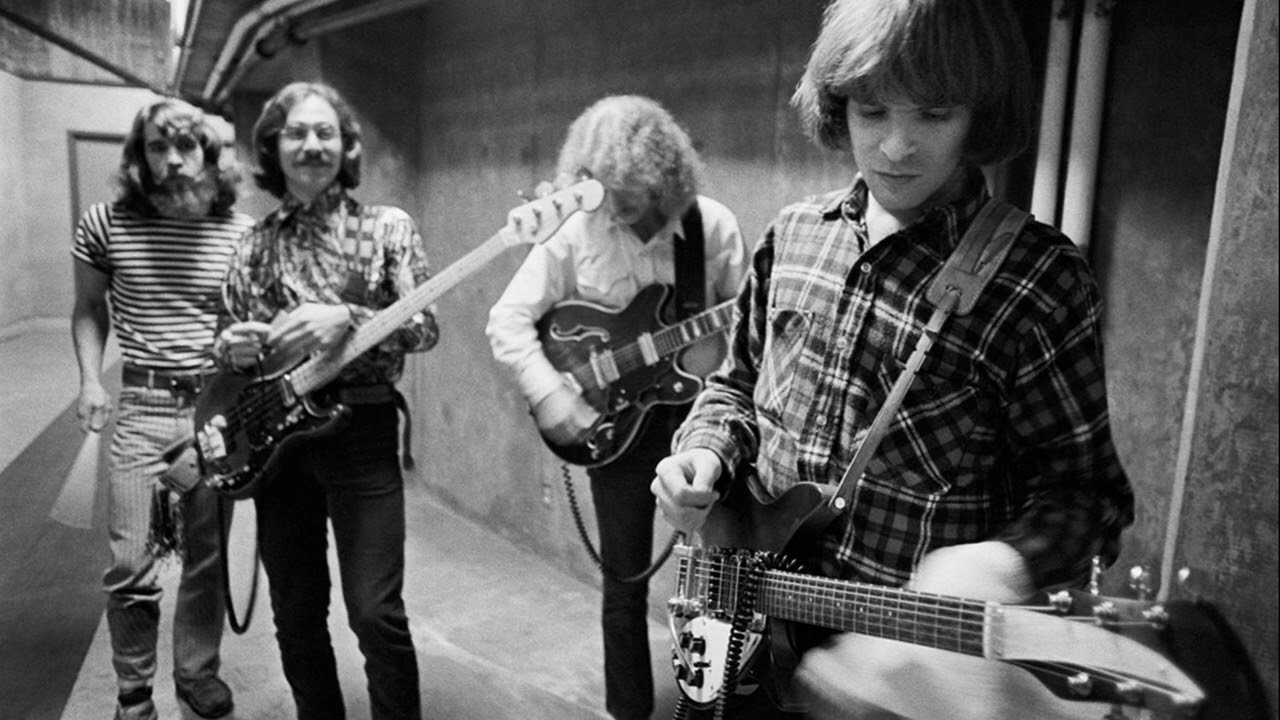
A prison prayer turned porchlight—a folk hymn about waiting for mercy, reborn as a roadhouse groove you can steer by in the dark.
Essentials up front. Song: “The Midnight Special.” Artist: Creedence Clearwater Revival. Album: Willy and the Poor Boys (Fantasy, November 1969). Origin: traditional American folk song long associated with Southern prisons (popularized by Lead Belly). CCR credits: arranged & produced by John Fogerty; engineered by Russ Gary; recorded at Wally Heider Studios (San Francisco). Placement/length: Side 2, Track 3; 4:13. Chart note: not released as a U.S. single (the album’s lone U.S. 45 was “Down on the Corner” b/w “Fortunate Son”); the CCR cut later turned up in other territories on 45s. Afterlife: the CCR version famously opens Twilight Zone: The Movie (1983), with Albert Brooks and Dan Aykroyd singing along in the car.
What a lot of us heard first, dropping the needle on Willy and the Poor Boys, was recognition. Here was a prayer-song—born in hard rooms, carried on work gangs, collected by Lomax and made immortal by Lead Belly—shaped into two guitars, bass, and drums with a motor that never shows off. CCR don’t decorate the tune; they clarify it. Doug Clifford’s backbeat walks steady, Stu Cook keeps the bass just behind the kick so the pocket feels lived-in, Tom Fogerty’s rhythm chops the air, and John Fogerty sings like a man who’s seen a few dawns from the wrong side of sleep. It’s still a plea—let the Midnight Special shine her ever-lovin’ light on me—but now it moves with the calm of somebody who believes the light will come. The album notes and histories make the lineage plain: a traditional, arranged by Fogerty, cut tight in 1969 and set forever in the band’s swamp-rock frame.
The placement on the LP matters. Side 2 opens with the blast of “Fortunate Son,” slips into “Don’t Look Now,” and then settles into “The Midnight Special.” It’s sequencing as storytelling: anger, appraisal, then endurance. At 4:13, CCR let the verses breathe; they’re not chasing radio time here, just the right swing for a song older than any of them. The track list confirms what your ears remember—this is the record’s slow, grateful exhale before the stark finale of “Effigy.”
For older listeners, the lyric’s image still lands: a train’s headlight sweeping past a cell window, a quick wash of brightness that feels like proof—of time moving, of freedom existing somewhere up the track. Folklorists have tied the song to prisons across the South since the early 20th century; when Lead Belly and others carried it into the wider world, that light became a public metaphor—mercy you can see. CCR keep that meaning intact but ground it in everyday sound: no choir, no strings, just a sturdy bar band giving you four minutes to remember who you are.
And while “The Midnight Special” wasn’t a U.S. single—Fantasy had all hands pushing “Down on the Corner”/“Fortunate Son”—the cut did make the rounds abroad on 7-inch pairings and lived a second life in pop culture. If you’ve ever watched Twilight Zone: The Movie open on a dark highway, you’ve seen how perfectly CCR’s take sets a scene: two grown men singing along like kids until the tape snaps and the real night begins. That placement isn’t trivia; it’s recognition of tone. The track sounds like America at midnight—engine hum, yellow lines, hope.
What keeps this version close, years on, is its humility. Fogerty doesn’t try to out-preach the folk tradition; he hosts it. The guitars answer the vocal in short phrases; the rhythm section refuses to rush; the voice stays level, almost neighborly. You can imagine the song on a front stoop as easily as on a stage. That’s Creedence’s old magic: take something fundamental and make it feel like company. On a quiet evening it can sound like memory; on a harder day it can feel like a promise you borrow until your courage catches up.
The archivist in you may like a few tidy facts for the sleeve: Willy and the Poor Boys bowed in November 1969; “The Midnight Special” sits Side 2, Track 3 at 4:13; the album’s only U.S. single was “Down on the Corner”/“Fortunate Son,” which is why there’s no American chart peak for this track; the CCR cut is traditional, arranged by John Fogerty, produced by Fogerty, with Russ Gary at the board; sessions ran at Wally Heider, San Francisco. And if you’re hunting deeper, you’ll find 45s coupling “The Midnight Special” with Creedence warhorses in Japan and elsewhere—a sign that even without U.S. airplay, the groove traveled.
Spin it now and the old picture comes back into focus: a room going quiet, a needle setting down, the first guitar figure opening like a door. Creedence Clearwater Revival didn’t just cover “The Midnight Special.” They kept it lit—a small, steady beam across the years, bright enough to find the handle and step outside.